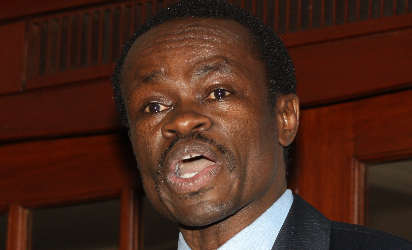…Odinga, Iyama advocate for Africa-rooted governance models
By Gabriel Ewepu
ABUJA — Renowned Pan-African scholar and legal expert, Professor Patrick Lumumba, has issued a stern warning that Africa will remain mired in political instability and underdevelopment if tribalism continues to drive political mobilisation across the continent.
Lumumba made the declaration on Tuesday at the International Conference on Africa’s Democracy (ICAD) 2025, held in Abuja under the theme “Building Governance Systems that Work in Africa for Africans.” The conference attracted policymakers, civil society leaders, academics, and youth from across the continent.
“The tribe is innocent; it is the tribalists who are guilty,” Lumumba stated, accusing opportunistic leaders of weaponising ethnicity to entrench division and deflect attention from governance failures such as poverty, insecurity, and corruption.
While acknowledging Africa’s rich cultural diversity, the former Director of Kenya’s Anti-Corruption Commission insisted that ethnicity must not form the basis of governance or political competition.
“We celebrate our differences, but we cannot allow ethnicity to be the basis of political mobilisation,” he stressed.
He blamed colonial powers for sowing the seeds of ethnic discord through the notorious “divide and rule” tactic. Citing the 1884–1885 Berlin Conference, Lumumba noted that Africa was partitioned along artificial lines that ignored cultural and ethnic realities, fueling the divisions that persist today.
“They told the Hausa and the Fulani one thing, the Igbo another, and sowed mistrust among us,” he said.
Lumumba called for a rejection of inherited colonial frameworks and urged African leaders to rebuild governance systems using indigenous models rooted in consensus, inclusion, and accountability.
Referencing traditional systems such as the Gadaa governance model of the Oromo people in Ethiopia and institutions like the Emir of Kano and Ooni of Ife, he argued: “Something must have been good about our traditional systems. We must build from within, not import.”
He also condemned the prevalence of “kakistocracy”—government by the least qualified, and challenged the notion that electoral processes alone guarantee good leadership.
“The ballot does not always deliver democracy,” he said, while urging Africa’s youth to embrace wisdom, responsibility, and self-determination.
“If tribalism continues to shape our politics, Africa is done. But if we rethink governance, build from our roots and include every voice, Africa will rise,” he declared.
In a powerful complement to Lumumba’s message, former Kenyan Prime Minister Raila Odinga emphasized the need for Africa to localize its democratic systems, warning against blind adoption of Western models.
“Democracy in Africa must be universal, yet uniquely African. We cannot keep importing models that disregard our history, culture, and systems of consensus,” Odinga said.
He also expressed concern over the backsliding of democratic gains across the continent, urging African governments to deepen transparency and citizen engagement.
Ambassador Chris Iyama, Team Lead of ICAD 2025, echoed the calls for introspection and reform.
“We need to start talking to ourselves. We need to redefine democracy on our own terms, and development on our own terms,” he said.
Iyama criticized Africa’s continued dependence on foreign aid and loans despite its vast natural wealth.
“For how long are we going to remain dependent on handouts? Year in, year out, we run budgets we can’t fund—yet we sit on billions in natural resources.”
The conference closed with a consensus that Africa must forge its own democratic identity, one that rejects division and embraces unity, accountability, and people-driven governance.
The post Tribalism threatens Africa’s future, Prof Lumumba warns at democracy conference appeared first on Vanguard News.

